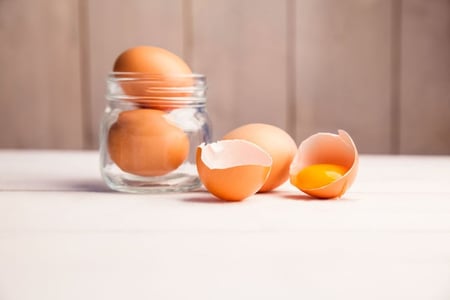
Calories are our body’s form of energy, thus playing an essential role in weight loss. “Ok, so i’ll just eat less and lose weight!” Think again. It might seem like a no-brainer to simply reduce your calorie intake when embarking on a weight loss journey. However, not all calories are created equal. Our bodies are complex systems where different nutrients are required for different functions. For this reason, quality and type of calories must take center stage when it comes to long term health and weight loss goals!
What Types of Calories Exist?
Calories are divided into three main macronutrients: carbohydrates, protein, and fat. Each plays a different role in the body, and are needed in different amounts. Let’s dive into the macronutrients and their essential roles in the human body!
Protein: Protein acts as the building blocks for many parts of our body, such as: muscles, bones, skin and hair. Sources include meat, fish, poultry, and soy products
Carbohydrates: Carbohydrates are your body’s primary and preferred source of energy. Sources include fruit, vegetables, starch, and dairy.
Fat: fat plays a variety of roles in the body including satiety, cell communication, and protection of organs. Sources include meat/fish, nuts, oils, and more.
A diet filled with adequate amounts of protein, carbohydrates and fat will ensure your body is functioning at optimal level!
How Does Food Quality Come into Play?
Simply put, food quality is related to whether the food has a positive or negative impact on our health. Since calories are a form of energy, some calories are used more efficiently than others. Calories that are inefficient are known as empty calories. This means their minimal use in the body causes them to be easily stored as fat!
High quality foods contain antioxidants and nutrients that are essential for our bodies to function properly. They contain little or no saturated fat, and no trans-fat; both of which are linked to coronary artery disease. High quality foods also have lower levels of sodium and simple sugars. Choose complex carbs like quinoa and whole grains over simple carbs like white bread and cookies. Kicking up the quality of your food choices can help stabilize your blood sugar levels and lead to less sugar cravings throughout the day.
Let's compare a banana to a chocolate chip cookie. Calories - probably the same. However, the banana offers potassium, B vitamins, and fiber, all with little to no fat. Meanwhile, the cookie provides you with little to no fiber, high amounts of saturated fat, plus added sugars. Which do you think will help you perform better throughout the day? Like we said before, not all calories are created equal- so opt for the higher quality foods vs the lower calorie foods.
Timing is Everything
As important as food quality is to maintaining a healthy diet, the timing of your meals also plays an essential role. Meal times can affect body weight, metabolic regulation, and even your sleep cycle. Throughout the day, our organs secrete hormones. If we aren't eating in line with those hormones, we're essentially feeding our bodies calories (energy) at a time when it’s less receptive to using them.
In the mornings, our bodies are in a fasted state, and need to be replenished with carbs, fats and protein. Between the larger meals, try eating foods that will hold you over to our next meal, usually protein and fiber. For lunch and dinner we want to provide our muscles with enough energy and sufficient protein, while continuing to support moderate blood sugar levels. A lean protein like chicken or fish, a complex carb like brown rice or quinoa, and healthy fats like olive oil or avocado will help to do the job.
The Bottom Line
If you are beginning a weight loss program, we suggest focusing on eating the right foods in moderate portions rather than sticking to a rigid calorie budget. Choosing meals and snacks that contain a variety of nutrient-dense, healthy foods instead of relying on packaged and processed snack foods will help you feel satisfied and stay on track.

Gal Shua-Haim is a registered dietitian and recipe developer. She has an all foods fit approach when it comes to nutrition. Her overall goal is to simplify your life in the kitchen by showing you that eating healthy can be easy without compromising taste.




